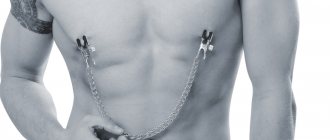Common Myths
Mothers believe that if a child spits up and gains a lot, then they are overfeeding him. They begin to give the baby a pacifier, drink it with water, and introduce non-calorie foods into complementary foods: boiled vegetables, baby cottage cheese. But this only makes the problem worse.
All the myths about overfeeding come from the times when most mothers bottle-fed their babies. With this type of feeding, the baby is unable to control the speed of milk flow and swallows air. As a result, regurgitation and pain appear.
You can overfeed your baby with formula. Breast milk contains components that help digestion.
Regurgitation
If the baby spits up after feeding 1-2 tablespoons, then this is considered normal. This is how nature makes sure that the baby does not overeat. Excessive regurgitation indicates the following problems:
- The baby swallows air. This occurs due to improper application. The mother should adjust her nipple latch on her own or seek the help of a consultant.
- Problems in the structure of the digestive system. Regurgitation occurs due to immaturity of the gastroesophageal sphincter.
By six months the unpleasant process passes. But severe regurgitation is a reason to consult a qualified doctor.
Increased gas formation
70% of newborns experience colic. Artificials experience flatulence more often and tolerate it more difficult.
If the baby is breastfed, then the problem may be caused by poor nutrition of the mother. A nursing woman should exclude the following foods from her diet:
- legumes;
- black bread;
- cucumbers and cabbage;
- prunes.
A baby who is too restless and refuses to eat should be seen by a doctor. The doctor will prescribe a bacteriological culture of milk and feces to determine the number of beneficial and harmful microorganisms.
Big increase
The scales in the medical office showed an increase of more than a kilogram, and the doctor begins to talk about possible overfeeding. In fact, an increase of 2 kg is considered normal.
In the first six months, the child hangs a lot on the chest and moves little, so his weight grows quickly. Then the baby begins to actively crawl, and the breast ceases to occupy the main place in his life. The toddler eats less, moves more, and weight gain decreases.
How to Address the Root Causes of Malnutrition
It is possible to eliminate the problem of lack of milk and provide the child with the necessary amount of nutrition; for this you need to adhere to the following rules:
- Do not let your baby suck on a pacifier;
- Put the baby to the breast more often, and do not skip night and morning feedings.
- During feedings, use skin-to-skin contact. This has a good effect on the baby’s nervous system and promotes the production of oxytocin (the hormone responsible for milk production) in the mother.
- Do not supplement with formula or cow's milk.
If the child is very weak, or has chronic underweight, then it is necessary to consult a doctor so that he can select an appropriate diet, monitor weight gain and the condition of the baby as a whole.
If breastfeeding is incorrect, the mother will develop cracks in her nipples and severe pain; the baby will feel very uncomfortable and become dissatisfied. The baby cannot fully latch onto the nipple and suckle at the breast, so he does not eat enough.
When putting your baby to your breast, you should adhere to the following rules:
- The little one should touch his mother's belly with his tummy, his face should be turned towards the chest. Feeding in a sitting or lying position is not important.
- The baby's head and torso should be positioned on the same line. The chin should touch the mother's breast.
- Make sure that the baby himself grasps the nipple along with the areola.
- The baby's lower lip should be slightly turned upward.
- During feeding, the mother needs to be relaxed and fully concentrate on the baby.

Proper latching of the baby to the breast
If the doctor reveals that the child has a short frenulum of the tongue, then it will not be possible to solve this problem on your own, since this defect can only be corrected by specialists. As a rule, this can be determined immediately after birth. Everything is done surgically, when the frenulum is slightly trimmed. In the future, this procedure will allow the baby to eat food without problems.
In order for a mother to have a lot of milk, she needs to carefully monitor her diet and develop a certain regimen. Nursing menus should include:
- Buckwheat and oatmeal porridge;
- Fish, eggs, red meat;
- Dairy products;
- Vegetables (raw or cooked);
- Nuts;
- Honey;
- Blackcurrant.
It is important that your food does not include mayonnaise, smoked meats, or dishes with a lot of spices.
We suggest you read: Acetone in children - causes, symptoms, treatment
There are other ways to increase lactation. First, you should start with your drinking regime. A nursing mother needs to drink at least 2.5 liters of clean water per day. You can also drink green tea, compote, various juices, oatmeal broth, nut milk, and fruit drinks.

Among the folk methods, dill water is considered very useful. It will help increase lactation, and also relieve the baby from constipation and eliminate colic.
It happens that with the help of proper and balanced nutrition it is not possible to increase lactation, then it is worth trying pharmaceutical teas to increase lactation and vitamin complexes for nursing mothers. To increase lactation, you can also perform a special massage of the mammary glands and a contrast shower in the chest area.
Additional Information. If you cannot increase lactation using any of the methods described above, you should seek help from a lactation consultant.

Tea to stimulate lactation
Can a baby eat a lot?
Sometimes a child eats more than usual. This happens when he gets too excited and actively nurses to calm himself down.
In some cases, the baby is too lazy to suck out hind milk, which is fattier and more nutritious. He begins to demand another breast and, in an attempt to get enough, eats more milk than his stomach can accommodate.
Heartburn also causes overeating. It causes discomfort and the baby begins to eat more to relieve it. But this only makes the problem worse.
The child grows in leaps and bounds. During the next growth spurt, he will require more milk and will have to start giving a second breast until the mother’s body adapts to the new needs of the toddler.
To avoid overeating, watch for correct attachment, try to change breasts every feeding, soothe the baby not only with milk, but also with soft stroking.
Overfeeding is only possible with mixture. Breast milk is a unique product that adapts to the needs of the newborn. The child can control the frequency of applications and the size of his portion. The mother should only ensure that the nipple is properly latched on and provide access to food at the request of her baby.
The issue of child nutrition worries every new mother, because many are accustomed to believing in the myth that the more the baby eats, the better.
Recently, experts have started talking seriously not only about the problem of obesity in preschool children, but also about the issue of overeating in newborns. This is what our article is dedicated to.
Basic advice for a nursing mother from Dr. Komarovsky
- It is better to eat a balanced, varied diet, without limiting yourself in food, while simultaneously monitoring the baby’s body’s reaction to the foods consumed. If he develops a rash, redness and discomfort in the abdomen, the product should be excluded.
- A nursing mother needs to rest more and spend time outdoors. In your free time, it is better to do what you love or just relax while watching your favorite movie. A good mood and a favorable psycho-emotional background are very important for a nursing mother.
- You should not pay attention to the stupid reproaches of others if your mother decides to stop breastfeeding at the age of one year. The baby will definitely not get better from continuing breastfeeding, but the mother will have an extra free minute to take care of herself and her business. Stopping breastfeeding does not pose any danger to a child after one year. But this should not be done before the age of one year.
- It is necessary to follow the rules and regime for attaching the baby to the breast in order to stimulate lactation. Irritating and stimulating the nipples is the best way to increase milk production.
- Pumping after each feeding is not only the prevention of hypogalactia, but also the prevention of lactostasis and mastitis. Therefore, Komarovsky recommends carrying out this procedure daily if the baby no longer refuses to eat.
Being a nursing mother is hard work. However, it is breastfeeding that ensures normal growth and development of the baby in the first year of life, prevents infection and reduces the risk of disease.
What causes overeating?
The most common misconception is that the baby cries because he is hungry.
Experts strongly recommend not to breastfeed at the first sob, because there are many other reasons why. The second reason for overeating is incorrect calculation of the amount of formula and milk the baby needs. On this issue, you should consult with a specialist and understand that the amount of formula offered to the baby should correspond to his age, height and take into account whether he is still receiving breast milk or not.
What to do?
In the first case, hormones should be blamed, trying to help the mother’s body provide the baby with the right amount of nutritious liquid product.
In the second, the mother overdid it and accelerated lactation by pumping (a breast pump greatly facilitates and speeds up this procedure) or by frequently moving the baby from one breast to another during one feeding.
The third case is the most common. Because, as we said, mothers are worried that their child may remain hungry and introduce complementary foods early, while completely ignoring the technology for preparing smetch and the amount recommended for a certain age and body weight.
To prevent this from happening, you should fill out a few simple rules:
- Do not make the mixture thicker than indicated in the instructions by reducing the volume of water in which the special baby powder is dissolved. This not only leads to rapid weight gain, but also harms the gastrointestinal tract.
- Do not introduce complementary foods too early (5 months is the best time). If you suspect that your baby does not have enough milk, introduce him to green apples - this is an ideal option for a toddler who is still breastfed.
Advice and recommendations from Dr. Komarovsky for nursing mothers
Education of the general population in the field of prevention and treatment of major diseases in mothers during breastfeeding is achieved through the media. Useful advice from doctors helps young mothers navigate, answering all their questions.
Pediatrician Komarovsky has gained wide popularity in Russia. His editor receives many letters from young mothers: up to what age should you breastfeed, how to properly latch on to your baby, what to do if your milk runs out. Let's look at Dr. Komarovsky's answers to the most popular of them.
How to combine breastfeeding and porridge?
If the specialist confirmed that the child is not eating enough and recommended including porridge in his diet, breastfeeding should be started.
When the little one has sucked everything out of it, offer him porridge. If he refuses, don’t push him. If he asks, give exactly as much as the recipe calls for. Remember that you are responsible for the baby’s health, so it is important to pay due attention to the issue. If you suspect that he is not eating enough or is gaining weight too quickly, consult a specialist. Your independently made decision to reduce the amount of serving or introduce complementary foods can harm him.
Among representatives of the older generation and experienced pediatricians, there is an opinion that a child while breastfed can transmit. Often such arguments are based on the fact that if a child transmits, he injures his fragile stomach. In most cases, such judgments are based on a simple ignorance of the difference between feeding a formula-fed child and a child who is on breastfeeding, but these are two completely different mechanisms.
About the diet of a nursing mother
Of course, we are not talking about alcohol, cigarettes, medications, or drugs that are strictly prohibited during breastfeeding. But if a woman wants fried potatoes or a mug of coffee, then there is no need to deny herself this. It is enough to limit the amount of consumption.
Important clarification! If the baby has constipation and abdominal discomfort, the mother should adjust her diet. Reduce the amount of protein foods, chocolate and sweets. The main emphasis is on vegetarian food. Before going to bed, you need to drink a glass of fermented milk drink with pieces of prunes added. This diet will relieve your baby from constipation in almost 100% of cases.
Artificial food can really overeat
A small child cannot regulate the process of satiation with the mixture, since this food is unnatural for him. For this reason, all responsibility for proper feeding falls on the shoulders of the mother. Any, even the most expensive, substitutes are not breast milk, so it is important to strictly adhere to the dosage. Feeding your baby formula can cause a lot of unwanted problems, most of which are related to the gastrointestinal tract. It takes a baby about 2 times longer to digest formula than it does to digest mother’s milk, so the breaks between feedings should be quite long.
Don't limit your baby
When a child drinks exclusively mother's milk, the body itself regulates the saturation process. From birth, the baby has well “studied” the milk that comes from the mother’s breast, so he knows how much it is needed. It is very important not to let your baby experience the feeling of lack of milk. The child may eat a little extra, but everything he has eaten too much will certainly be vomited.
Mother's milk is of particular value for the baby; it is interesting that its composition changes depending on the age of the child. Breast milk not only saturates him. The baby suckles at the breast to relieve any pain, to calm him down, or simply to fall asleep. Therefore, the newborn must be put to the breast very often. The composition of mother's milk is easily and quickly absorbed by the body. This is what is needed for a tiny ventricle, which hardly has to work to digest food that is natural to it. From the stomach, milk very quickly enters the intestine, where it is easily absorbed by its walls.
Nature also took into account the fact that at night the baby’s body must rest from digesting too fatty foods, so during night feeding, completely low-fat milk is produced.
The myths have been debunked and conclusions can be drawn. Minor overeating during breastfeeding is possible, but the child’s body is able to regulate this process itself; unnecessary and excess food will simply be regurgitated. The situation is worse with children who are bottle-fed; in this case, strict control is necessary to avoid serious health problems for the baby.











